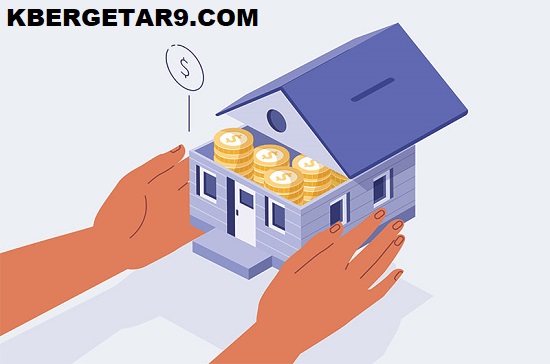Introduction to Home Equity Loans
Home equity loans are a popular financial tool for homeowners in Canada looking to leverage the equity in their homes to access funds for various purposes. Whether it’s renovating a home, consolidating debts, or funding a major expense, home equity loans offer a flexible and convenient solution.
Introduction to Canadian Home Equity Loans
Canadian home equity loans are a versatile financial tool that allows homeowners to access the equity built up in their properties for various purposes. Whether it’s renovating a home, consolidating debts, or funding a major expense, home equity loans offer a flexible and convenient solution for Canadians.

Understanding Home Equity
What is Home Equity?
Home equity is the portion of your property that you truly own. It’s calculated as the difference between the current market value of your home and the outstanding balance on your mortgage. For example, if your home is worth $400,000 and your remaining mortgage balance is $250,000, your home equity would be $150,000.
How is Home Equity Calculated?
To calculate your home equity, subtract the amount you owe on your mortgage from the current market value of your home. The resulting figure represents the equity you have in your property. Intellectual property (IP) attorney
Types of Canadian Home Equity Loans
Traditional Home Equity Loans
Traditional home equity loans, also known as second mortgages, involve borrowing a lump sum of money against the equity in your home. These loans typically come with fixed interest rates and predictable monthly payments.
Home Equity Lines of Credit (HELOCs)
HELOCs are revolving lines of credit that allow homeowners to borrow against their home equity as needed. With a HELOC, you can borrow, repay, and borrow again up to a predetermined credit limit during the draw period.
Cash-Out Refinance
Cash-out refinancing involves replacing your existing mortgage with a new one that’s larger than your current loan balance. The difference between the two mortgages is paid out to you in cash, which can be used for any purpose.
Benefits of Canadian Home Equity Loans
Lower Interest Rates
Home equity loans often come with lower interest rates compared to other types of loans, making them a cost-effective borrowing option for Canadians. Real estate lawyer
Potential Tax Benefits
In Canada, the interest paid on home equity loans may be tax-deductible if the funds are used for eligible purposes, such as home improvements. It’s essential to consult with a tax advisor to determine eligibility.
Flexibility in Use of Funds
Canadian home equity loans provide flexibility in how you can use the borrowed funds. Whether it’s for home renovations, education expenses, or debt consolidation, you have the freedom to allocate the funds according to your needs.
Risks of Canadian Home Equity Loans
Risk of Foreclosure
Defaulting on a Canadian home equity loan can lead to foreclosure, putting your home at risk of being seized by the lender. It’s crucial to make timely payments to avoid this scenario.
Fluctuating Interest Rates
Some Canadian home equity loans, such as HELOCs, come with variable interest rates, which means your monthly payments can fluctuate over time. It’s essential to budget for potential rate changes.
Potential Negative Equity
If the value of your home decreases or you borrow too much against your equity, you could end up owing more than your home is worth, known as negative equity. This situation can make it challenging to sell or refinance your property.
How to Qualify for a Canadian Home Equity Loan
Equity Requirements
Lenders typically require Canadian homeowners to have a minimum amount of equity in their property before approving a home equity loan. The exact equity requirement varies depending on the lender and the loan-to-value ratio.
Credit Score and Income
Your credit score and income play a significant role in determining your eligibility for a Canadian home equity loan and the interest rate you’ll receive. Lenders use this information to assess your ability to repay the loan.
Loan-to-Value Ratio
The loan-to-value ratio compares the loan amount to the appraised value of your home. Lenders use this ratio to evaluate the risk of lending to you. A lower loan-to-value ratio indicates less risk for the lender.
Applying for a Canadian Home Equity Loan
Documentation Needed
When applying for a Canadian home equity loan, you’ll need to provide documentation such as proof of income, property valuation, and mortgage statements. Be prepared to submit these documents to the lender for review.
Choosing a Lender
Take the time to research and compare Canadian lenders to find the best home equity loan terms and interest rates that suit your financial needs. Consider factors such as reputation, customer service, and loan terms.
Loan Approval Process
Once you’ve submitted your application, the lender will review your financial information and determine whether to approve your Canadian home equity loan. The approval process may vary depending on the lender’s criteria and the complexity of your application.

Alternatives to Canadian Home Equity Loans
Personal Loans
Personal loans are unsecured loans that can be used for various purposes, including home improvements, without the need for collateral. While they may have higher interest rates than home equity loans, personal loans offer flexibility and quick access to funds.
Credit Cards
Credit cards offer a convenient way to borrow money for smaller expenses, but they often come with higher interest rates compared to home equity loans. Use credit cards responsibly and pay off the balance in full each month to avoid accumulating debt.
Government Assistance Programs
In Canada, there are various government assistance programs available to homeowners, such as the Home Adaptations for Seniors’ Independence (HASI) program. These programs provide financial assistance for home renovations and accessibility improvements for eligible individuals.
Conclusion
Canadian home equity loans are a valuable financial tool that provides homeowners with access to funds for a wide range of purposes. Whether you’re renovating your home, consolidating debts, or funding a major expense, home equity loans offer flexibility, competitive interest rates, and potential tax benefits. However, it’s essential to understand the risks involved, including the potential for foreclosure and negative equity. Before applying for a home equity loan, carefully evaluate your financial situation and explore alternative financing options to ensure it’s the right choice for you.
FAQs
- Can I get a home equity loan with bad credit in Canada?
- While it may be challenging to qualify for a home equity loan with bad credit in Canada, some lenders offer specialized products for borrowers with less-than-perfect credit. However, these loans may come with higher interest rates and stricter eligibility criteria.
- How much can I borrow with a Canadian home equity loan?
- The amount you can borrow with a Canadian home equity loan depends on factors such as the amount of equity you have in your home, your creditworthiness, and the lender’s criteria. Generally, lenders may allow you to borrow up to 80% of your home’s appraised value, minus any existing mortgage balance.
- Are there any fees associated with Canadian home equity loans?
- Yes, Canadian home equity loans may come with fees such as appraisal fees, legal fees, and closing costs. It’s essential to review the loan terms and discuss any associated fees with the lender before proceeding with the application.
- What happens if I can’t repay my Canadian home equity loan?
- If you default on a Canadian home equity loan, you risk foreclosure, which means the lender can seize your home to recover the debt. It’s crucial to make timely payments and communicate with your lender if you’re facing financial difficulties to explore alternative solutions.
- Can I use a Canadian home equity loan for any purpose?
- While Canadian home equity loans offer flexibility in how you can use the funds, it’s essential to check with your lender to ensure your intended use is allowed. Some lenders may have restrictions on the use of funds, while others may offer more flexibility.


